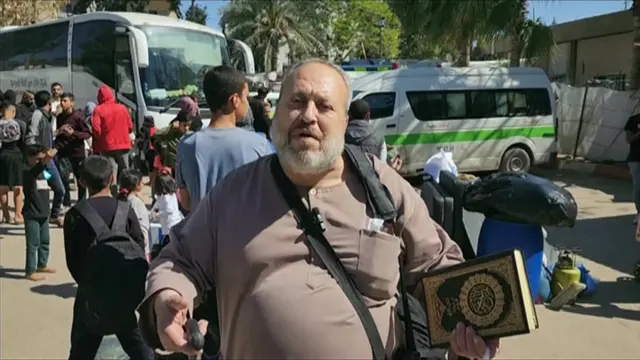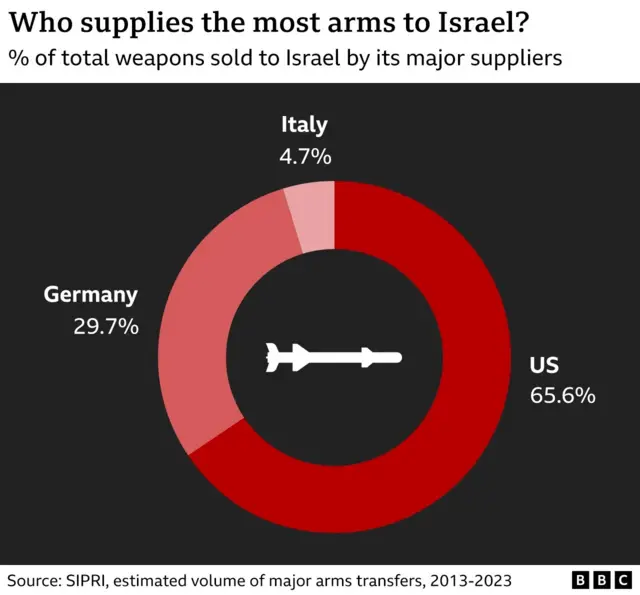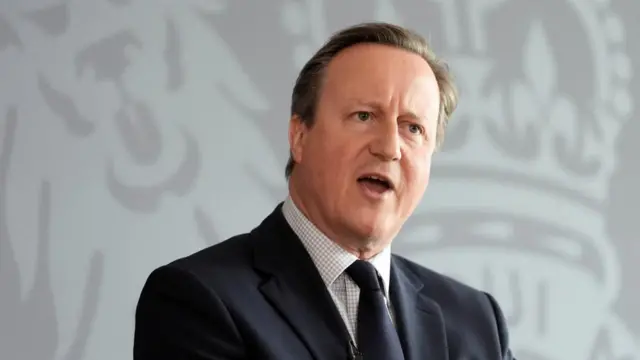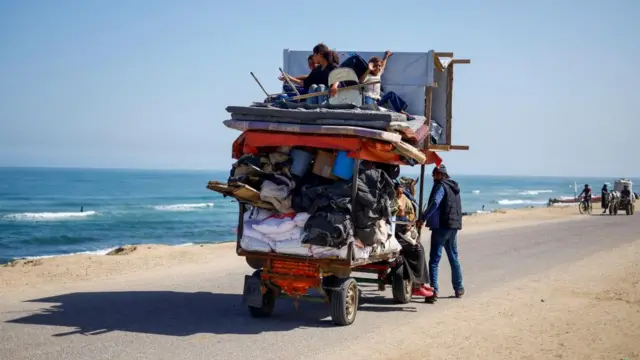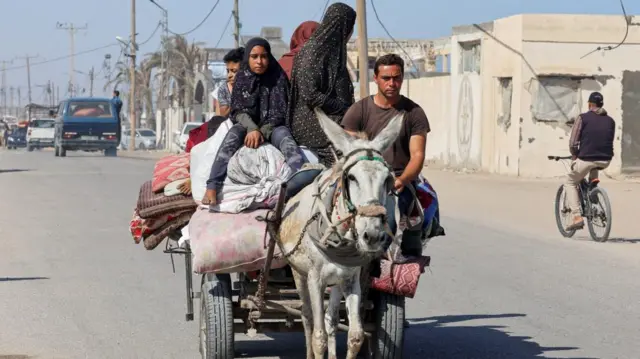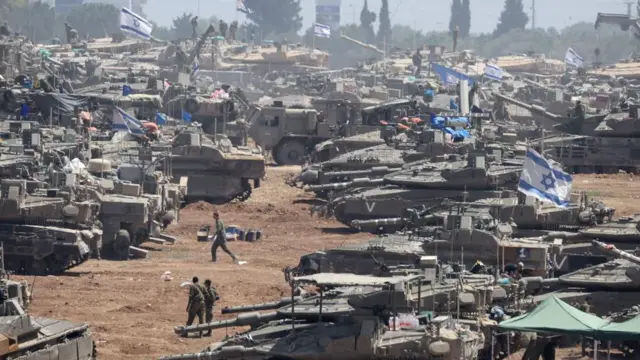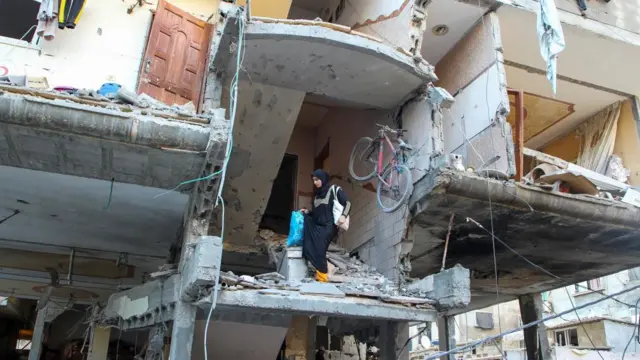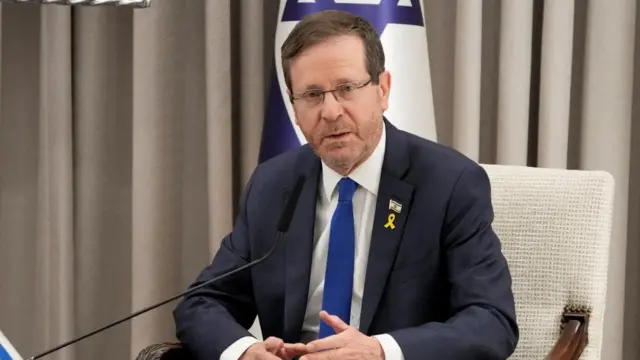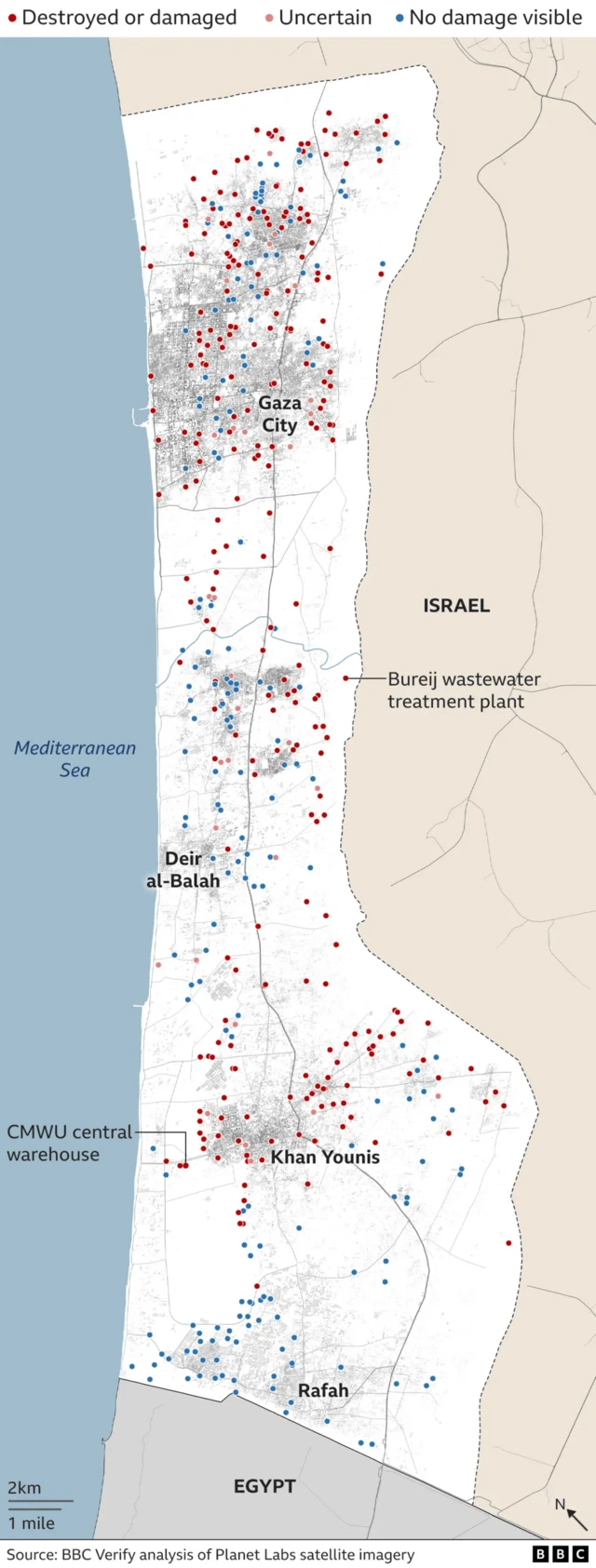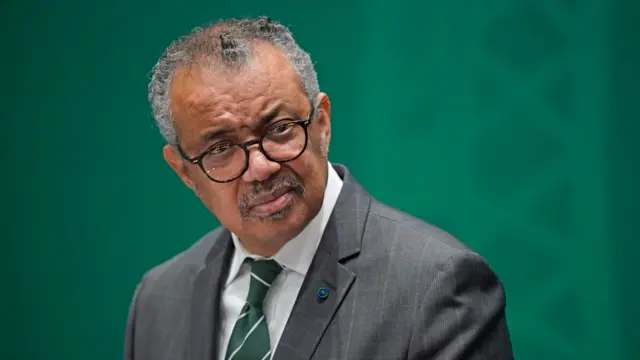In pictures: Palestinians inspect damage in Rafahpublished at 14:04 BST 9 May 2024
We're now bringing you some of the latest pictures from Rafah, showing Palestinians inspecting debris and continuing to leave the southern city following an evacuation order.
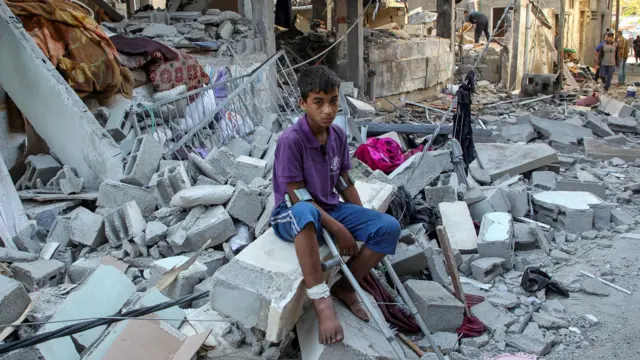 Image source, Reuters
Image source, ReutersA child sits on debris at the site of a strike on a house in Rafah.
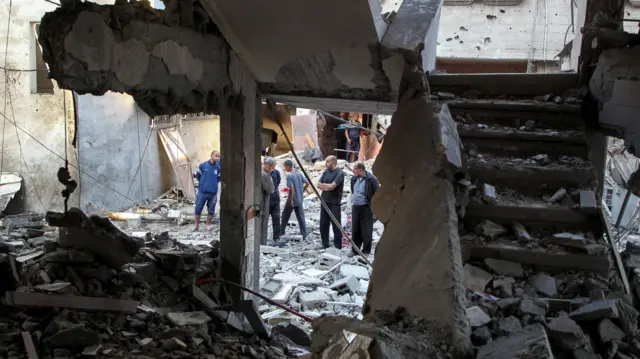 Image source, Reuters
Image source, ReutersPalestinians gather at the site of a strike on a house in Rafah.
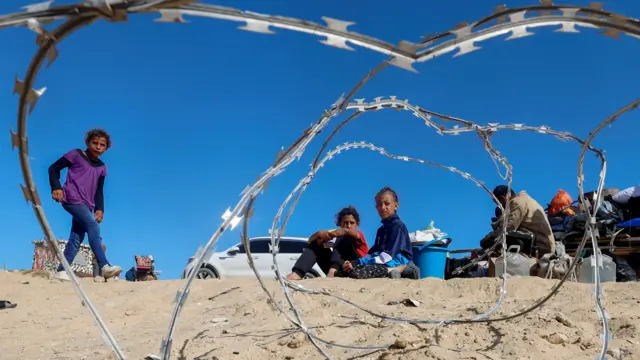 Image source, Reuters
Image source, ReutersChildren sit next to belongings as people flee Rafah after an evacuation order.
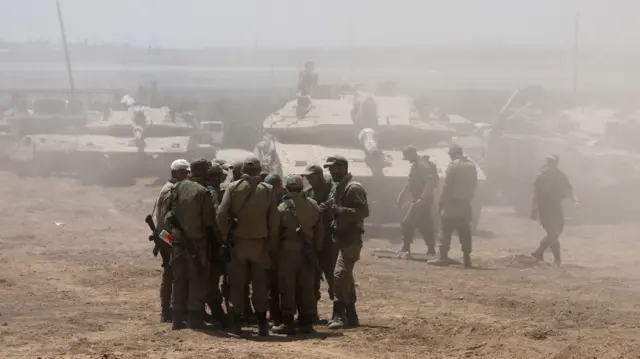 Image source, Shutterstock
Image source, ShutterstockIsraeli soldiers gather at an undisclosed position near the border fence with the Gaza Strip, in southern Israel.

